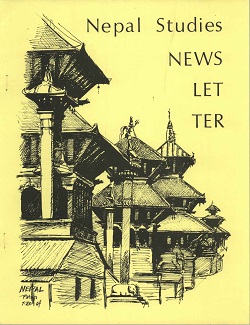Author Biography
Holly Gayley is Assistant Professor in the Department of Religious Studies at the University of Colorado, Boulder. Her current research explores the revitalization of Buddhism in Tibetan areas of the PRC and a new ethical reform movement spawned by cleric-scholars at Larung Buddhist Academy in Serta. Her recent publications on the topic include: Reimagining Buddhist Ethics on the Tibetan Plateau (Journal of Buddhist Ethics, 2013) and The Ethics of Cultural Survival: A Buddhist Vision of Progress in Mkhan po ‘Jigs phun’s Advice to Tibetans of the 21st Century in Mapping the Modern in Tibet, edited by Gray Tuttle, (International Institute for Tibetan and Buddhist Studies, 2011).
Nicole Willock is Assistant Professor in the Department of Philosophy and Religious Studies at Old Dominion University in Norfolk, Virginia, where she teaches on Buddhism and World Religions. Her research explores the complex relationships between state-driven secularization, religious practice, and literature in 20th century Tibet and China. Her publications include The Revival of the Tulku Institution in Modern China in Reincarnation in Tibetan Buddhism: Birth-Narratives, Institutional Innovation, and Embodiment of Divine Power, edited by Derek Maher and Tsering Wangchuk (Boston: Wisdom Publications, forthcoming) and Tibetan Monastic Scholars and the Great Proletarian Cultural Revolution in Re-remembered Meetings: Post-Mao Retellings of Early Tibetan Encounters with the Chinese Communist Party, edited by Robbie Barnett, Francoise Robin and Benno Weiner (Leiden: Brill Publications, forthcoming).
Abstract
This special issue on ‘The Secular in Tibetan Cultural Worlds’ originated in a panel on The Secular in Tibet and Mongolia at the Thirteenth Seminar of the International Association of Tibetan Studies held in Ulaanbaatar, Mongolia in 2013. To contextualize the contributions to this issue, spanning diverse temporal and geographic contexts, this Introduction raises theoretical concerns and discusses contested terminology regarding ‘religion’ and the ‘secular’ in Tibetan discourse. The authors situate local articulations of the secular within broader academic discussions of the varieties of Asian secularisms and offer a key intervention to complicate the secularization thesis and prevailing views of Tibet as a predominantly religious culture.
Acknowledgements
The authors wish to thank the contributors to this volume—Tsering Gonkatsang, Matthew King, Leigh Miller, Emmi Okada, Annabella Pitkin, Françoise Robin, Dominique Townsend—as well as the other original panelists—Janet Gyatso, Nancy Lin, and Tsering Shakya—on the panel, ‘The Secular in Tibet and Mongolia,’ at the Thirteenth Seminar of the International Association of Tibetan Studies in 2013. The presentations, questions, and comments by panelists and audience offered new perspectives, provided the fodder for further investigations into the secular in Tibetan cultural worlds, and paved the way for this special issue of HIMALAYA. All the contributors worked diligently to craft their articles and, as part of the process, we are appreciative of the anonymous peer reviewers. We are also grateful to the Tibetan artists featured in the Gallery for permission to use their artwork in this issue and to Françoise Robin and Tsering Gonkatsang for their respective translations—the short story, ‘Entrusted to the Wind’ by Lhashamgyal, and the historical essay, ‘Tibetan Woodblock Printing: An Ancient Art and Craft’ by Dungkar Lobzang Trinlé. Finally, the authors would like to express their appreciation to Sienna Craig and Mark Turin for their invaluable guidance in bringing this special issue to publication, and to others who work behind the scenes at HIMALAYA in the editing and publishing processes.
Creative Commons License

This work is licensed under a Creative Commons Attribution 4.0 License.
Recommended Citation
Gayley, Holly and Willock, Nicole. 2016. Introduction | Theorizing the Secular in Tibetan Cultural Worlds. HIMALAYA 36(1).
Available at:
https://digitalcommons.macalester.edu/himalaya/vol36/iss1/8


